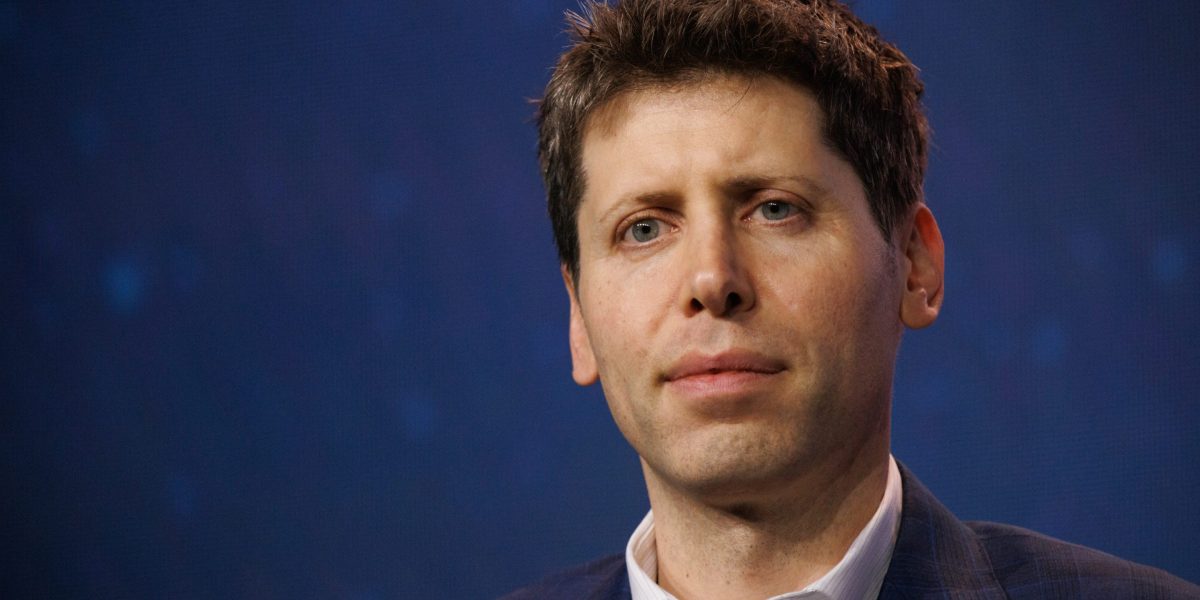
Dean Leitersdorf and I are on Zoom, watching a Sabrina Carpenter music video.
In “Taste,” Carpenter and Jenna Ortega comically feud in over-the-top fashion—complete with chainsaws, machetes, and camp. But we’re not watching the original. In real-time, the video is transfigured into a snowy animated wonderland, courtesy of an AI model called Mirage. The model was built by Decart, an AI lab focused on interactive experiences that Leitersdorf cofounded and leads. The site calls Mirage a “world transformation model,” but Leitersdorf prefers “livestream diffusion model”—“a way better name,” he says.
“Look, I’m a Lego man!” Leitersdorf laughs as we scroll through other possibilities on Mirage. Effusively, Leitersdorf shows me what it would look like to turn his video into “Zombies!” mode, flying through “cabincore” and steampunk modes. In “World of Wizards” mode, he shows me how mundane objects—like pens—appear as spell-casting beams of light.
This is both fun and games, and entirely serious—Leitersdorf, who cofounded the company with Moshe Shalev in 2023, has long been clear about the depth of his ambition: He wants Decart (yes, named with the philosopher in mind) to be a trillion-dollar company.
“We’re here to build a billion-user consumer app,” said Leitersdorf. “It can’t be that ChatGPT is the last thing a billion people will install on their phones. It just can’t be. The next thing a billion people install on their phones needs to be a Decart product… So, the vision is this: A billion-user company that completely changes how people interact with tech. We do it through building one of the best AI labs in the world. One day, it’ll be top five, top three, and then number one. And we do this with a very small but very fun, talented team.”
Decart has closed a $100 million Series B, valuing the company at $3.1 billion, Fortune has exclusively learned. Sequoia Capital, Benchmark, and Zeev Ventures, all existing investors, participated in the round, with new investor Aleph VC also joining. This round undoubtedly marks a valuation leap—previous reports pin Decart’s valuation at $500 million. (The company didn’t comment on specific numbers.) What’s more, Leitersdorf says the raise was wholly unnecessary—despite raising $153 million in the last 11 months, Decart has spent less than $10 million of its investors’ money.
Nevertheless, Decart remains far from its trillion-dollar goals. But Leitersdorf—born in Israel, raised in Palo Alto, and who earned his doctorate by 23—approaches that ambition with a hard-charging, exuberant confidence.
“Give it five years, 10 years,” said Leitersdorf. “If it works, that’s incredible. And if it doesn’t, you had the best five years of your life. It took a year for us to say it out in the open. And people definitely told us, once we said it publicly, ‘You guys are crazy.’ I say, let them call us crazy.”
And to be clear, it does sound crazy—though not quite as crazy as it would have even a few years ago. Trillion-dollar companies didn’t exist at all (at least, not in modern financial markets) until 2018, when Apple first crossed the mark. Today, depending on fluctuations, there are between eight and 10 trillion-plus companies in the world by market cap. The goalposts are moving in the markets, and the landscape of the Internet is also about to change.
Leitersdorf has a clear view about how the Internet is changing post-ChatGPT. Pre-ChatGPT, he says, consumer Internet use could fall into four categories—knowledge, e-commerce, communication, and creativity (or, if you like, fun). His case: With the rise of AI, the first three categories are already en route to being completely transformed by AI agents and chatbots. That leaves creativity and fun, where Decart believes it can make an impact, said Leitersdorf.
“Think about Netflix, Minecraft, Instagram, TikTok, that’s all a huge portion of the internet,” he told Fortune. “It accounts for more than half the internet, both in time spent and in dollars. And AI still hasn’t completely made its mark. Our TikTok feeds are flooded by AI cats. But that’s not really a new experience. We’re still doing lots of the same things we’ve done for years, opening apps we’ve long opened and engaging with them the way we always mostly have.”
Leitersdorf added: “Over time, we won’t just be seeing Sabrina Carpenter videos. The experience itself will change.”
OpenAI update… OpenAI is reportedly set to hit a valuation of $500 billion, and—also reportedly—today the company’s GPT-5 is expected to see its release.
ICYMI… The second episode of the Term Sheet Podcast is live! Our next guest: Taylor Otwell, CEO and founder of Laravel—the company’s $57 million raise from Accel last year was one of our most-read Term Sheets of 2024. Listen here.
See you tomorrow,
Allie Garfinkle
X: @agarfinks
Email: [email protected]
Submit a deal for the Term Sheet newsletter here.
Joey Abrams curated the deals section of today’s newsletter. Subscribe here.
Venture Deals
– Chai Discovery, a San Francisco-based AI-powered molecule engineering company, raised $70 million in Series A funding. Menlo Ventures led the round and was joined by Yosemite, DST Global Partners, SV Angel, Avenir, DCVC, and others.
– Positive Development, a McLean, Va.-based provider of developmental therapy for children with autism, raised $51.5 million in Series C funding. aMoon Fund, B Capital, and Flare Capital Partners led the round and were joined by Healthworx, Digitalis Ventures, and others.
– Lorikeet, a New York City-based developer of AI-powered customer concierge software, raised $35 million in Series A funding. QED Investors led the round and was joined by Blackbird, Square Peg, Skip Capital, Capital49, Operator Partners, Airtree, and Athletic Ventures.
– Elion, a New York City-based AI-powered research and intelligence platform for health care technology, raised $9.3 million in seed funding. NEA led the round and was joined by Cedars Sinai Health Ventures, TMV, Scrub Capital, and Alumni Ventures.
Private Equity
– AVS Bio, a portfolio company of Arlington Capital Partners, acquired IPA Europe, a Brussels, Belgium-based antibody discovery and protein production company, carved out of ImmunoPrecise Antibodies. Financial terms were not disclosed.
– BV Investment Partners acquired a majority stake in The Millenium Alliance, a New York City-based conferences and executive education platform. Financial terms were not disclosed.
– Opiniion, backed by Five Elms Capital, acquired Rentgrata, a Miami, Fla.-based resident engagement tool. Financial terms were not disclosed.
Exits
– Advancing Eyecare, a portfolio company of Cornell Capital, acquired Birmingham Optical, a Birmingham, U.K.-based optical equipment and services company. Financial terms were not disclosed.
– Blackstone agreed to acquire Enverus, an Austin, Texas-based data analytics energy intelligence platform, from Hellman & Friedman and Genstar Capital. Financial terms were not disclosed.
– KKR recapitalized DentalXChange, an Irvine, Calif.-based provider of revenue cycle management solutions for dental practices. Bregal Sagemount exited their investment in the company as part of the transaction. Financial terms were not disclosed.
People
– Eclipse, a Palo Alto, Calif.-based venture capital firm, hired Joe Fath as partner and head of growth. Fath was previously with T. Rowe Price.















